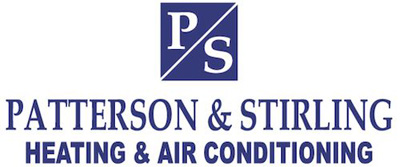
If you’re in the market for an air purifier, you might be realizing that some brands are spouting lots of claims. And most of those claims could feel too good to be true. So, it’s only natural that you may be questioning are air purifiers a waste of money.
They’re useful, according to the EPA, since they’re a fantastic method to improve your Erie home’s indoor air quality. Modern homes are tightly sealed and deeply insulated, which is excellent for energy efficiency, but not so fantastic for indoor air quality.
Because updated homes don’t normally let in as much outside air as older residences, pollutants like dust, pet dander and cleaning products can accumulate in your home. The result? Air that’s more contaminated than the outdoors, which is not good if you are dealing with allergies, asthma or are vulnerable to respiratory irritation.
Our indoor air quality pros at Patterson & Stirling can help you cut through the clutter and select the best home air purifier. Just give us a call at 814-308-0416 and we’ll be happy to provide support. In the meantime, find out more about how air purifiers work, their pluses and our suggestions to help you select the best air purifier.
How Do Air Purifiers Improve Indoor Air Quality?
Most home air purifiers use a fan to draw in air. Then, the air moves through one or more filters to catch pollutants before being recirculated.
These filters might have a charcoal filter, to get rid of odors, and a HEPA, or high efficiency particulate air, filter. A HEPA filter is at least 99.7% effective at capturing tiny particles down to .3 microns, such as dust, pollen, mold and some bacteria.
An air purifier can be compact and used to purify an individual room. Or they can be fitted to your HVAC system, delivering powerful filtration for your entire house.
The EPA says it’s important to know that air purifiers can’t remove all the contaminants from your home’s air. But when used in tandem with an improved filter for your HVAC system, they can significantly lower the amount of indoor air pollution.
4 Perks of Air Purification
Getting an air purifier for your home can give many outstanding health advantages. Here are just a couple of them.
1. Decreases Allergy and Asthma Triggers
Air purifiers lower pollutants in your home, such as some of these common triggers:
- Dust
- Pollen
- Mold
- Volatile organic compounds, like cleaners, air fresheners and personal care products
2. Alleviates Other Problems Related to Poor Indoor Air Quality
Even if you or someone in your household doesn’t experience allergies or asthma, an air purifier can alleviate other issues linked to bad indoor air quality. These include:
- Itchy throat, eyes, nose or skin
- Headaches
- Sneezing and coughing
- Fatigue
- Dizziness
- Nausea
It can be tricky to determine troubles associated with indoor air quality, because they can be caused by many other illnesses. However, if you’re aware that you feel better after you leave home, your indoor air quality is possibly causing a problem.
3. Removes Odors
Persistent odors, such as cigarette smoke or cooking smells, can be tough to eliminate. If you having issues with eliminating strong smells in your residence, our pros advise buying an air purifier with a charcoal or activated carbon filter.
4. Can Lower Your Chance of Being Sick
An air purifier can remove some bacteria and viruses under certain airflow conditions, keeping you and your loved ones in good health particularly during cold months. To take complete advantage of this benefit, our professionals suggest a UV air purifier. Disinfecting ultraviolet light gives an extra layer of safeguard against airborne pathogens.
Air Purification Systems to Skip
You’re better off without some air purifiers. Here are several features to stay away from when picking a system for your residence:
- Makes ozone. Some air purifiers create ozone, which can aggravate your lungs. The EPA recommends avoiding ozone air purifiers.
- Doesn’t have HEPA filters. For the best outcome, you’ll want a HEPA air purifier. Considered the gold standard for healthy air, HEPA filters are used in many healthcare settings, like hospitals.
- Only purifies one room. We recommend getting a whole-house air purifier, which filters the air throughout your home. This style operates with your heating and cooling system.
When you partner with the indoor air quality professionals at Patterson & Stirling, we make it simple to select the best air purifier for your house. Contact us at 814-308-0416 to start breathing fresher air today!


